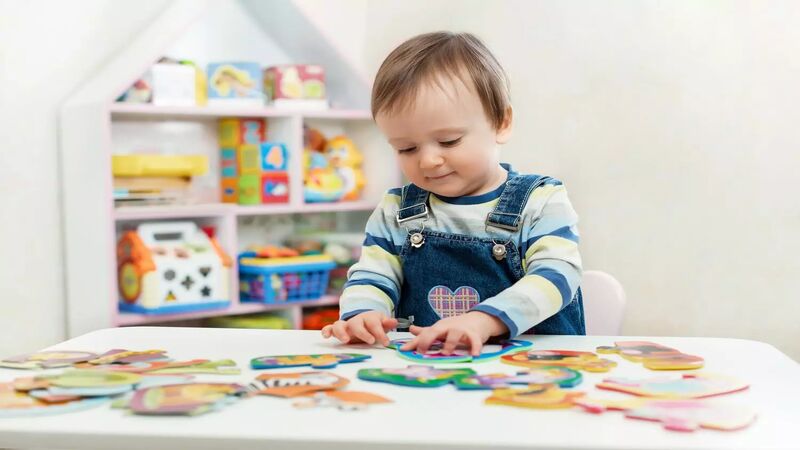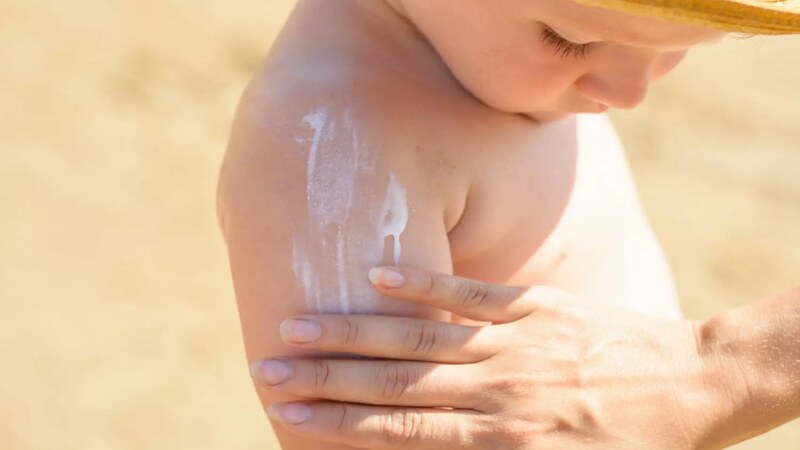
Your toddler is now 27 months old. It has been 3 months since you celebrated their birthday and it already feels like a lot of time has passed since then. If you look back on videos from the birthday and compare them to your toddler now, you can see how much their movements and skills have improved. You will also notice the new toddler milestones they attained in the last few weeks.
What new toddler milestones will your little one attain in the coming weeks? Will they learn fast or will they slow down? Should you do more activities or engage them more to aid in their development or should you just encourage free play? Very confusing right? Don’t worry, just read on and we will guide you about the various toddler milestones and how to help in the coming weeks.
Developmental Milestones For 27-Month-Old Toddler

Some developmental toddler milestones you can expect from your 27-month-old are-
Speaking Skills
- Toddlers can speak more clearly now
- Their pronunciations and sentence formations get better with frequent conversations and communication
- Some will also use alternate words to convey their message if you don’t understand what they are telling you
- If you don’t understand their pronunciations or what they are referring to, they will find creative ways to express what they intend to
- It is a good time to teach more words to your toddler
- You can teach new words in more than one language
Copy Others
- Toddlers at this age understand they have to do or talk like their peers or elders in the family
- They will observe very closely and copy what others around them are doing
- They also tend to copy actions they see regularly, even if it is not taught to them explicitly. Be careful about what you expose them to
- Ensure what they see on the screen, in the books, or hear is all child-safe content
Physical Development
- Your toddler can now jump in one place and also jump from one spot to another
- They can go up or down the stairs using one step at a time (placing both feet on each step)
- Some may try to use one foot on each step like the adults around them. Most toddlers can now use an open cup to drink without spilling much
- Just ensure you don’t give them big or full cups as it will be difficult for them
Becomes Shy
- Many toddlers will become shy and start hiding
- It can be a new person or someone they have not met in a while
- Communicating with them can make the toddler feel very anxious
- While some toddlers might just smile and hide behind a parent, some might just be unresponsive and not make eye contact
- Their socializing skills are developing and they need time and patience
Impulsive Behavior
- Toddlers tend to get very impulsive at this age
- They might suddenly throw an item or even hit or push their sibling or peer
- Some toddlers will repeat such actions despite you repeatedly asking them not to do so
- Their brains are still developing and they are yet to master impulse control
Solo Play
- Many toddlers may like to play by themselves even in the presence of company
- They will like to sit and play in a room with other adults or kids around, but won’t actively play with others. They just need the presence but not the participation
- They are in the process of understanding their toys and their actions in their own way and will not like the company of other toddlers or to be interrupted
- This is an important cognitive development and nothing to worry about
Growth Chart For a 27-Month-Old Toddler
An average 27-month-old height and weight will be as follows-
Girls
Weight – 9.6 – 15.4 Kg
Height- 81.9 – 94.6 cm
Boys
Weight – 10.2 – 15.9 Kg
Height- 83.5 – 95.7 cm
(This chart is just an indication and these parameters may vary from one toddler to another)
Tips to Boost Your 27-Month-Old’s Development
Here are some tips for parents to aid their 27-month-old’s development in attaining their toddler milestones-
1. Direct Teaching

Opt for direct teaching rather than teaching using media. Many play schools and parents use educational videos to teach toddlers songs, letters, numbers, etc. Teaching them in person will have a stronger impact than passive learning from screens (1).
2. Support a Shy Toddler

If your toddler is suddenly feeling shy and is not talking or exhibiting skills in front of others like before, just let them be. If they are not ready to answer questions directed at them, step in and answer for them instead of forcing them to answer. Respect their emotions.
3. Respect Body Boundaries

If your toddler does not want to hug or touch someone, don’t force them. Never force your toddler to hug or kiss someone or sit on someone’s lap. If they don’t want to do it, respect and acknowledge their body boundaries. This will help them grow into confident individuals who understand safe and unsafe limits when it comes to their physical selves.
4. Regular Conversations
Keep talking to your toddler about their day, your day, their experiences, feelings, etc.
Health And Care of Your Toddler

Here are some ways to effectively take care of your growing toddler’s health to help them attain those toddler milestones-
- Use a good moisturizer to protect your toddler’s skin from harsh weather and small scrapes or scratching
- Toddlers are faster and taller now. They can hurt their head under the tables or other furniture quite frequently. Give them a gentle but firm massage on the injured spot to prevent the bump from getting bigger
- Refrain from using very cold ice packs for extended periods of time on your toddler’s head or ears. The cold temperature can hurt them
Some Useful Tips For Your Toddler

Here are some tips to help both parents and toddlers attain important toddler milestones efficiently-
- Ask your toddler leading questions about their friends or games they play, to understand how they are processing the information and experience
- If your toddler is having a hard time accepting a “no”, give them time to cope with the rejection. Don’t try to distract, threaten, or bribe them into hiding their emotions
- Explain what you see using simple words they can understand and use. Explain how bright the sun is, how pink the flower is, or how happy the dog looks. This helps them compare, understand, and express better
- In case of meal refusals, add fruits and vegetables to the snack and increase the quantity of the snack. Sometimes, your toddler might just try to test limits by defying you
- If your toddler is sick with the flu or common cold, keep them home. It can be tough to manage a sick toddler at home but it is not right to send a sick kid to school or playgroup
Toddlers grow much faster than we expect and learn many skills quite easily. While some skills can be tricky for them to master. Most toddlers are better at some skills than others. Encouraging them to keep trying the tricky ones and appreciating their efforts can give them the confidence and the push to keep trying till they succeed.
FAQ’s
1. How Many Words Should a 27-Month-Old Say?
A 27-month-old toddler should comfortably use more than 50 words. Some toddlers can even use up to 100 words. Toddlers at this age should also speak simple sentences with two or three words in them.
2. What Happens at a 27-Month Check?
The doctor will check the toddler’s weight to see the rate of weight gain, will visually gauge if their height is within the expected range, and also check their teeth. The doctor may casually strike up a conversation to see how well the toddler can understand, respond, and pronounce words. This will help them identify any developmental delays if any.
3. Is it Normal For a 27-Month-Old to Not Talk?
No, it is not normal for a 27-month-old toddler to not talk. Most of them can talk comfortably. If your toddler is able to understand everything but is unable to respond using words, it could indicate a speech delay. Consult your pediatrician and a speech therapist if necessary for advice on the next course of action.
4. What Are The Gross Motor Skills of a 27-Month-Old?
At 27 months, toddlers should be comfortably walking, running, climbing up and down the stairs without much help, jumping from one spot to another, and also jumping a little in the same spot. They can hold and throw a ball, run after a ball, and catch it too. They can also hold one toy in one hand and use the other hand to do something else. Both hands can work independently.
References
- Don’t Try This at Home: Toddlers’ Imitation of New Skills from People on Video – [https://www.ncbi.nlm.nih.gov/pmc/articles/PMC2610533/]
